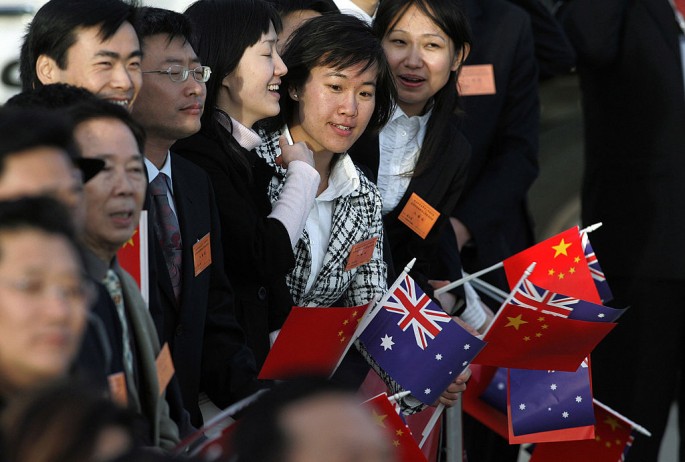The burgeoning "daiguo" business is making a big contribution to Australia's multi-million dollar export industry while giving Chinese consumers access to Australian products, according to a BBC report.
"Daiguo," which means "in behalf of" in Mandarin, is a retail business managed by young migrants or international students who buy products in a foreign country and sell them to consumers back home in China.
Daigou trade first became popular in Europe where enterprising individuals ship luxury goods such as Gucci handbags to China. But in Australia, the trade involved mostly everyday items such as food, beauty products, wine and clothes.
According to the report, an estimated 40,000 "daiguo" are currently doing business in Australia and the trading center is Sydney, which has a growing Chinese community and has numerous direct flights to China, making it easier to transport goods.
One of them is Rika Wenjing, a 24-year-old accountancy graduate from Wuhan, who sells infant food, supplements and skin lotions to customers in China. She told BBC that she has been working part-time in the past two years as a "daiguo" and has built a network of around 300 clients who are willing to pay premium prices for trustworthy Australian goods.
"In the beginning I just had my friends and my aunty to buy baby formula or unique brands from Australia, like Ugg boots. Then I wanted to build a platform to show more products to them," Rika told the BBC. "I don't want just to earn money, I want to provide products to my friends."
Although the Chinese government has tightened regulations on cross-border online shopping early this year, the "daiguo" trade continues, especially in baby milk formula, known as "white gold."
Following the 2008 melanine contamination in milk products, which killed six children and affected nearly 300,000 in China, imported milk became a highly valued product.
"Everyone cannot buy the good quality or the reliable formula in China, so they want to buy from Australia. Maybe it is more expensive, they don't care [about] the price but they do care about the quality," Rika explains.
Although daiguo charge 50 percent more than the retail price in Australia, the price is still lower compared to the same product in a local shop, the report said.
But these retail sellers face the challenge of convincing their Chinese customers that the products are genuine and the suppliers are reliable. To overcome this, some sellers take livestream footage of their visits to supermarkets to prove that their goods are authentic.
"There are smaller daigou, so mum doing a home business and ship the product to China. There are also those which open up their own shop and try to do a bigger-scale business," Benjamin Sun, the co-founder of Think China, a digital marketing company in Sydney, said.
"Some of the daigou . . . establish their own logistics, own e-commerce website and try to formally distribute the products. It is all about trust, that is what daigou is doing--building trust between their clients. They are small but they are a lot of people. If you add them together, they are huge."
Daiguo traders have created trading routes into China that Australian and New Zealand companies have not reached before and these firms are now working with specialists to enhance their services.
"We think daigou are good for both the local economy . . . and they are very good for our business," Peter Nathan, chief executive of A2 Milk, a New Zealand baby formula manufacturer in Australia. "We clearly believe they are a positive force and it's fair to say that it is something we are assessing."




























